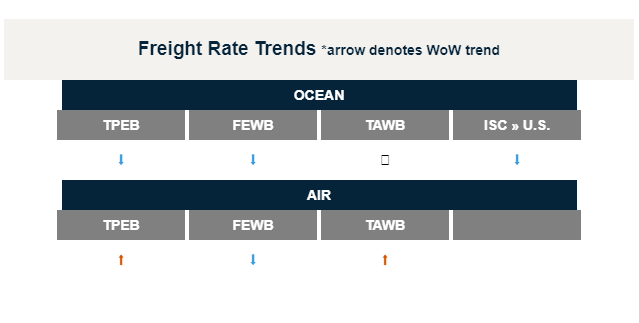Trends to Watch
|
| This Week In News |
| US Import Gain Means Flexport Sees No Recession for Some Months
The latest forecasts released by Flexport Research show a steady increase in consumption, among other signs that recession isn’t as imminent as previously thought. “A recession may well be on the way, but from the latest data, we’re not seeing it arriving in the next few months,” said Phil Levy, Flexport chief economist. At the same time, the U.S. domestic trucking industry showed the largest decline in tonnage hauled since the beginning of the pandemic, as the truck tonnage index fell 5.4% in March over February. [Podcast] What Are Responsible Supply Chains and What Role Does Trust, Transparency and Technology Play in Achieving Them? In this latest episode of Zero100’s “Radical Reinvention” podcast, Zero100 Co-Founder Kevin O’Marah is joined by: Dave Clark, CEO of Flexport, Anne-Laure Descours, Chief Sourcing Officer at PUMA, and Reginaldo Ecclissato, Chief Business Operations and Supply Chain Officer at Unilever. The discussion is a deep dive into responsible supply chains and the role that trust, transparency and technology play in achieving them—as Dave says, “I don’t think you can be in the supply chain anymore without waking up and thinking about your impact on people and the planet.” |
Source from Flexport.com

